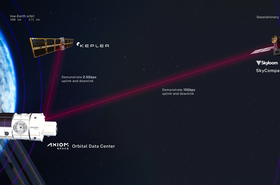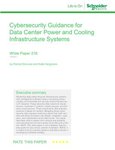China is reportedly building cyber weapons to seize control of enemy satellites, according to a leaked CIA report.
The Financial Times (FT) reported that these cyber weapons would make the satellites useless when providing data signals or surveillance during wartime.
The FT said that it had reviewed the CIA-marked document, noting that it is one of the dozens allegedly shared by 21-year-old US Air Guardsman Jack Teixeira, who was recently arrested for allegedly leaking several classified documents online in a gaming chatroom.
According to the document, the US suggests that China is pushing to develop capabilities that enable it to "deny, exploit, or hijack" enemy satellites.
This leaked report comes at a time when trade relations between the US and China are already strained. The FT noted that the CIA, along with the National Security Council (NSA) and the Pentagon, has declined to comment.
Beijing reportedly sees such tactics as a key "war-fighting domain", where such an approach would go beyond anything Russia has done during its war with Ukraine.
SpaceX noted that its Starlink satellite broadband service faced signal jamming during the early weeks of Russia's invasion of Ukraine last year.
Another satellite operator, Viasat, also reported cyberattacks against its satellite Internet network in the early days of the conflict, with the impact of the outage called "catastrophic" by Ukrainian officials, with the service even impacting other European countries including Germany, Italy, and Poland.
However, this leaked report by the US anticipates that the Chinese are preparing more sophisticated cyberattacks that will enable them to mimic the signals that enemy satellites receive from their operators, which in the process trick them into either being taken over completely or malfunctioning.
This leaked report comes shortly after General B Chance Saltzman, the chief of the US Space Force, publicly acknowledged the threats that exist in space in an interview with CNBC.
"The threats that we face to our on-orbit capabilities from our strategic competitors [have] grown substantially,” he said. “The congestion we’re seeing in space with tracked objects and the number of satellite payloads, and just the launches themselves, have grown at an exponential rate.”
Saltzman told Congress last month that Beijing is aggressively seeking to become the foremost power in space by 2045, noting that China's military had deployed 347 satellites, including 35 launched in the past six months.
He said that satellites are aimed at monitoring, tracking, targeting, and attacking US forces in any future conflict.







